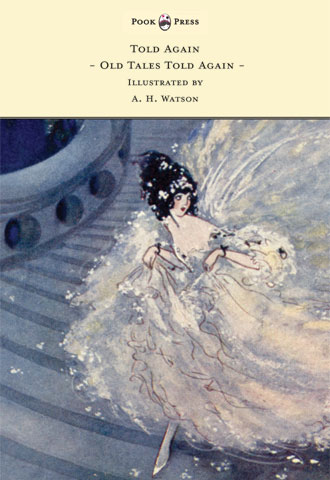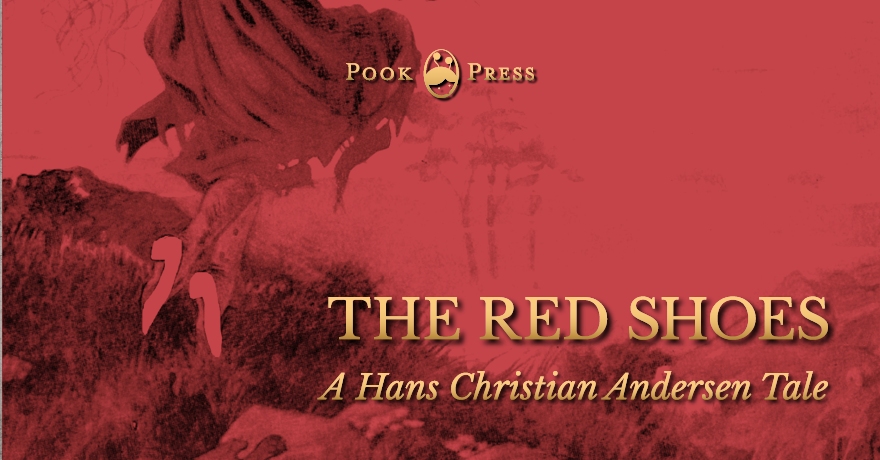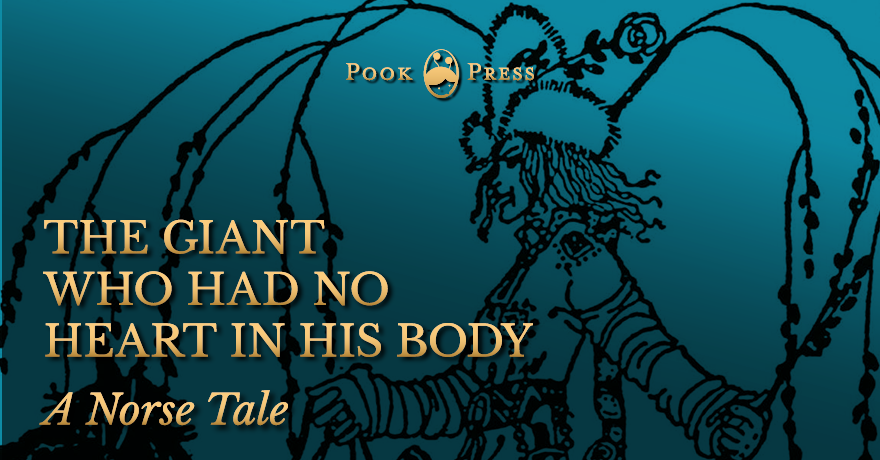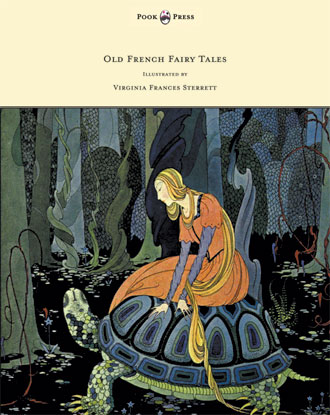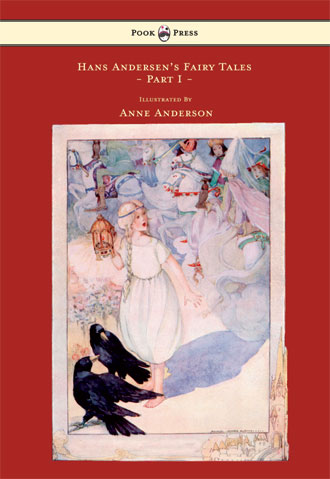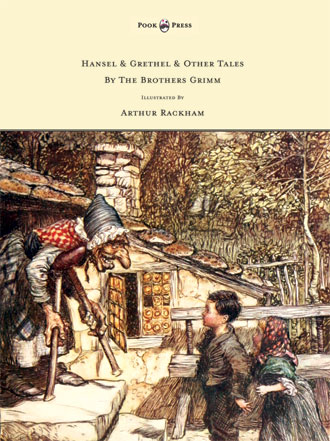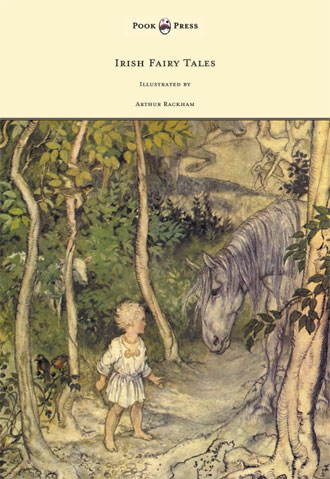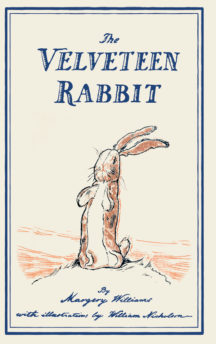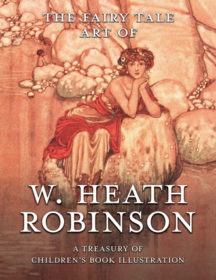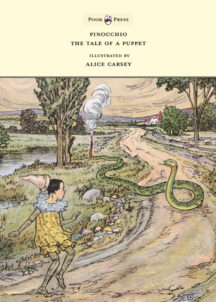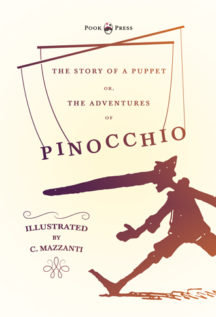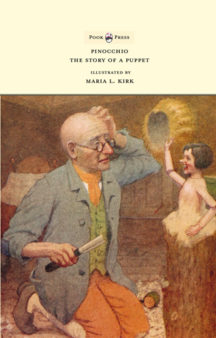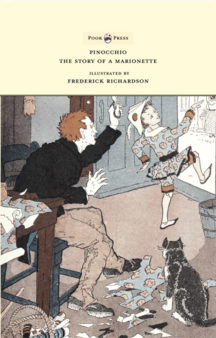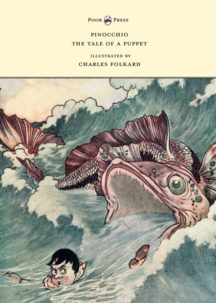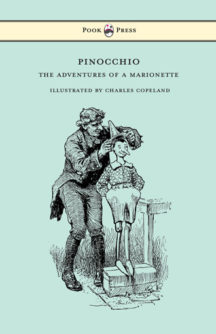The Wolf & The Fox – A German Fairy Tale
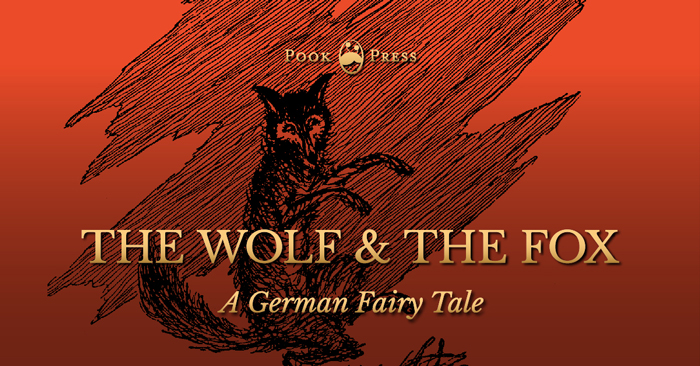
A tale of a crafty fox, an unlikely friendship, and a wolf that lets gluttony get the better of him.
The Wolf & The Fox
– A German Fairy Tale –
A FOOLISH fox once made friends with a wolf. With his silky brush and pointed nose, he fancied himself a smart fellow, and hardly knew at first which way to look he was so vain of his new company. But he soon found out that his fine friend was not in love with him for his own sweet sake, and that being a wolf, a wolf he was. For one thing, he was a villainous glutton and could never eat enough; and next, he had no manners.
“And what’s for supper to-night?” he would say, with his white teeth glinting in the moon. “Bones! Bones! Lor’, friend Fox, if you can’t get me anything really worth eating, I shall soon have to eat you.” It was an old joke now; and though he laughed as he said it, he did not look very pleasant when he laughed.
The fox grinned on one side of his face, but not on the other. “Well, friend Wolf,” he said, “keep up your spirits. There’s a farmyard over the hill where two plump young lambs are fattening. Softly now, and away we go!”
So off they went together. When they reached the farmyard the fox sneaked in through the gate, snatched up one of the lambs, leapt over the stone wall and carried it off to the wolf. After which, he trotted round to the henhouse to get his own supper in peace. But when the wolf had finished off his lamb—leaving not so much as a bone for his friend to pick—he felt hungrier than ever, and determined to slip away himself and get the other.
But he was so clumsy in scrabbling over the stone wall of the yard that the old mother sheep heard him, and began bleating aloud in the darkness. At this the farmer—who was sitting in his kitchen—ran out with his dog and a cudgel, and managed to give the wolf such a drubbing as he climbed back over the wall, that he came creeping back to the fox as wild with pain as he was with rage.
“A nice thing you’ve done,” he said to the fox. “I went to fetch the other lamb, and I’m beaten to a jelly.”
“Well,” said the fox, “one’s one and two’s two; but enough is as good as a feast”; and he thought of the tasty young pullet he had stolen for his own supper.
Next day they decided to be getting off into country where they were less well-known. After a pleasant afternoon’s journey, they found themselves on the edge of a little green coppice, and the wolf fell asleep in the sun. He woke up as surly as a bear with a sore head.
“Come, rouse, friend Fox! Supper!” he bawled. “What’s for supper? No more lamb to-night. I’d sooner eat you!”
The fox trembled with rage, but he answered him civilly and said: “I seem to smell pancakes—rich pancakes. Squat here awhile, friend Wolf, and I’ll see what can be done.”
He slipped off and away to the other side of the wood, and came to a house from whose brick chimneys a faint smoke was going up laden with so sweet and savoury an odour of pancakes, that the fox lifted his nose into the air and snuffed and snuffed again. Then first he crept this way; and then he crept that way; and at last he stole in through an open window, and so into the pantry, and leaping up on to a şhelf, carried off at least six of the pancakes.
The wolf swallowed them down without so much as a thank’ee, and champed for more. The glutton then asked the fox which way he had gone. The fox told him. “You’ll know the house by the smoke,” he said, “and the window is by the water-butt. But step quiet, my friend, if go you must, for I heard voices.” The greedy wolf, thinking that if the fox came with him to the house he would expect a share of the pancakes that were left, at once scuffled off alone into the night to finish the dish.
But he made such a hullabaloo in the pantry as he went sprawling along the shelf, upsetting a great cooking crock as he did so, that the farmer and his wife, and the friends who had been supping with them, heard his noise and came rushing in, and gave him such a basting that he hardly escaped with his life.
When he had licked his bruises and got some breath into his body again, he came snarling back to the fox, and blamed him for his beating. The fox coughed and turned his head aside; he could hardly speak for rage and contempt. However, the duck he himself had supped off was still sweet in memory; so he answered the wolf smoothly, reminding him that he had been given a fair warning. “Besides,” said he, “as I’ve said before, enough is as good as a feast, friend Wolf; and with some sauces, much better.”
Yet, even now, the wolf had not learnt his lesson. For, a very few evenings afterwards, though he could only limp along on three legs, and every bone in his body ached, he turned morosely on his friend the fox, and said: “Friend Fox, I’m sick and tired of you. You’ve no more wits than a rabbit. ‘Sly,’ indeed! Now, see here; if before that moon up there has climbed an inch in the sky you don’t get me a meat meal, a tasty meal, and plenty of it—a supper worth a gentleman’s eating, I’m saying—then it will surely be the last of you, for I’m done with your shilly-shallying.”
The fox trembled and said, “Softly, softly, friend Wolf; why lose your temper? I do my best. This very morning I heard that the human that lives by the stream on the other side of the hill yonder has been killing a pig. A fat pig—a very fat pig; a pig stuffed with fatness. And the salt pork of that pig is packed in a barrel in the human’s cellar. Ah, I see your mouth watering. Come, we will go together.”
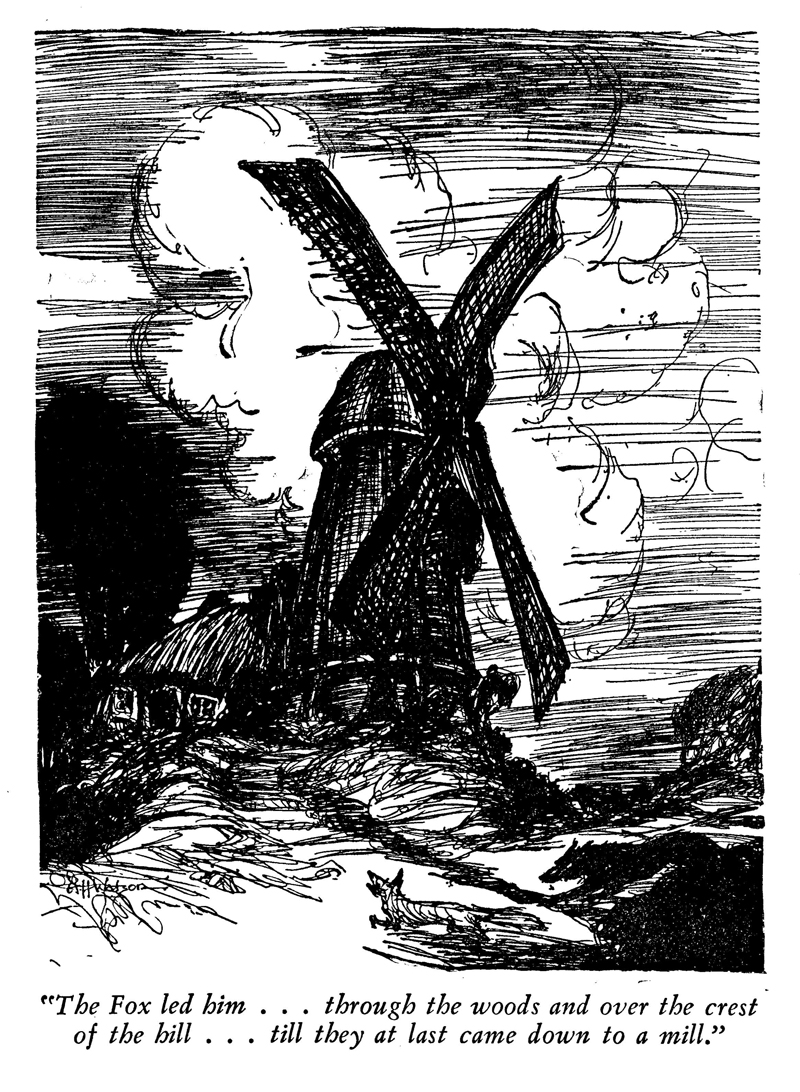
“Why, yes,” said the wolf, “and you shall keep watch while I eat.”
So the fox led him off by a green ride through the woods and over the crest of the hill, and by a cart-track, till they at last came down to a mill. It was a clear moonshine night, with a touch of frost in the air. And as it chanced, there was a small, round-topped little door under the wall of the house that led into the cellar. The fox lifted its latch; paused; sniffed; listened; sniffed again.
His green eyes glistened like fireballs, as he turned his sharp muzzle and looked back at the wolf. “Come,” he said, “and do not so much as grin or gruff, for the human of this house has a gun.”
The wolf, being overfed and overfat, only just managed to scramble through the hole. But at last he followed the fox into the cellar, and was soon guzzling away at the barrel of salted pork.
“Tell me, friend Fox,” he said, glancing over his shoulder, his jaws dripping, “why do you keep running to and fro? Restrain yourself. It pesters me. How can I feed in comfort with you fidgeting about? Keep still; and you shall, perhaps, have a gobbet or two yourself. All depends on what I leave.”
“Gobble on, gobble on,” said the fox craftily. “There’s plenty of time for me. But I warn you: don’t make a noise, and don’t eat too hearty!”
“Ah,” said the wolf, “you thought this fine fat feast of pork was for you, did you? And after all my pains in finding it! Have no fear, my friend, there won’t be much pork when I’ve finished.”
At this, with a stroke of his paw and a shove of his shoulder, he turned the great salty tub clean over on the stones of the cellar; and a fine clatter it made.
Indeed, the miller, who was at that moment shaving himself in a looking-glass, hearing this noise in his cellar, supposed for a moment there was an earthquake. Then he snatched up his blunderbuss, and with the soapsuds still foaming on his cheek, came clumping down the stone steps.
At first sound and sniff of him, the fox was out of the hole at a bound, and in a moment or two his friend the wolf was struggling hard to follow him. But the greedy guzzler had puffed and swilled himself out so fat with his feast of pork that, wriggle and wrench as he might, he could not squeeze through the hole. So there he stuck. And the miller, though he had lost a good half of his pork, at least gained a thick wolf’s skin in exchange.
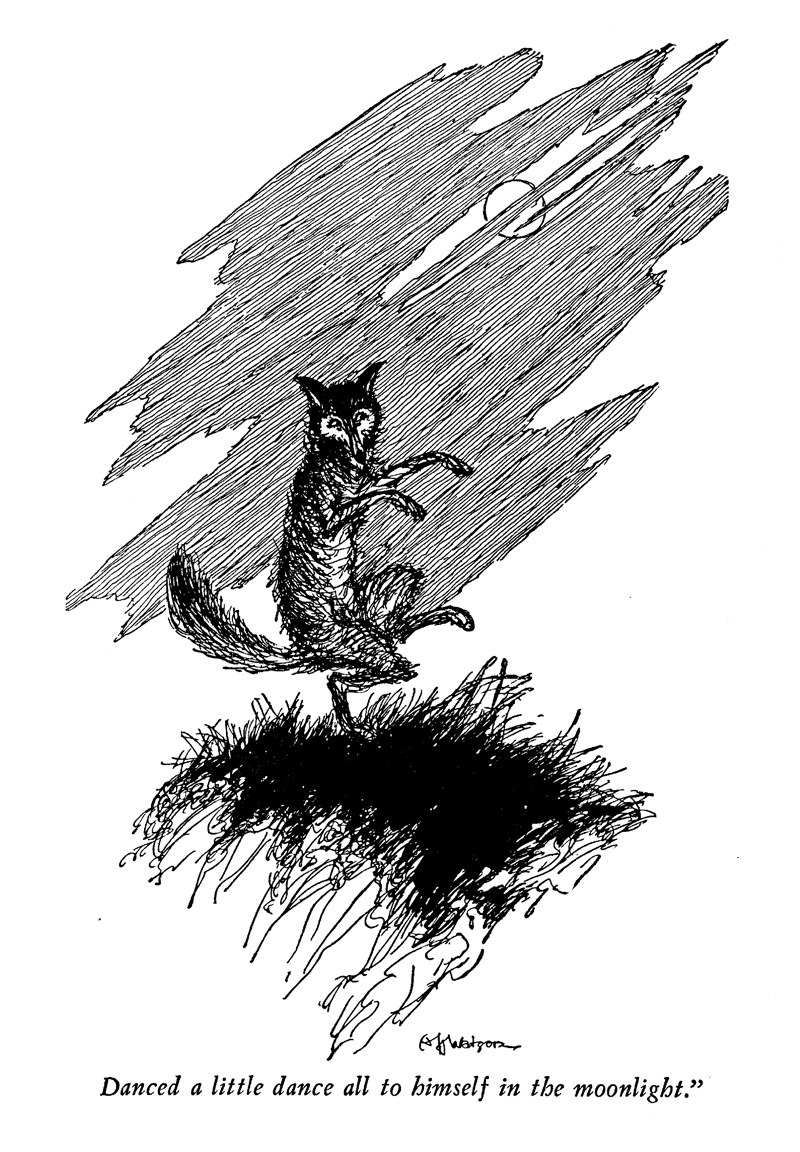
Meanwhile, the fox on the crest of the hill, hearing the roar of the blunderbuss, shivered a little, then danced a little dance all to himself in the moonlight. There and then he made up his mind that his next friend should not be one of the selfish and mighty ones, but of his own size and liking; and one with a brush.
This story was taken from:
More stories from our Fairy Tale Library:
Other Pook Press Books you might like…

